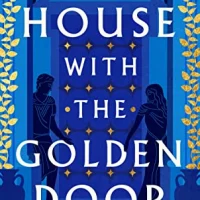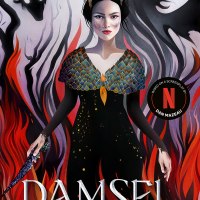#RRSciFiMonth Book Review: Valiant Dust by Richard Baker
I received a review copy from the publisher. This does not affect the contents of my review and all opinions are my own.
Mogsy’s Rating: 3 of 5 stars
Genre: Science Fiction
Series: Book 1 of Breaker of Empires
Publisher: Tor (November 7, 2017)
Length: 352 pages
Author Information: Website
Richard Baker is a name I know mostly from his game design work for Dungeons & Dragons as well as his Forgotten Realms novels, so my curiosity was piqued when I learned that he was kicking off a new military sci-fi series called Breaker of Empires. The first book is Valiant Dust which introduces protagonist Sikander North, a prince of Kashmir who has just been assigned to serve as the new gunnery officer aboard the Aquilan Commonwealth starship CSS Hector. Almost right away, he experiences pushback from some of his fellow crewmates who either doubt his ability or are disdainful of his background.
Meanwhile, Amira Ranya Meriem el-Nasir, niece to the Sultan of Gadira is growing more concerned for her uncle’s safety as her home world is caught up in the middle of a political storm. She meets Sikander and quickly strikes up a friendship with him as the Hector is called upon to quell the uprising and provide aid as the Dremark Empire attempts to exert its influence by destabilizing the planet’s government. Unlike the Aquilan Commonwealth, the Empire subscribes to more extreme methods in matters of colonial strategy, sowing chaos in a bid to seize control of the planet from its current masters, the Republic of Montreal.
Mirroring the tumultuous era of Earth’s own colonial history, Valiant Dust blends political intrigue and space opera elements to create a futuristic vision of a galaxy fought over by two major powers. Through the eyes of Sikander, readers see how 19th century style colonization has affected his own planet of Kashmir which has experienced much technological advancement under Aquilan rule, though plenty of economic and social issues still exist at all levels. Compare this to Ranya’s experience on Gadira, where swift modernization has also led to lost jobs, increasing inequality gaps, and uprisings due to fears that the common people and their traditions are fast becoming left behind.
Featuring characters from worlds influenced by diverse cultures and faiths, the story also closely examines the relationship between those in power and the individual citizen. The first half of the book is also an important look at the way these great colonial powers view their vassals, following the trials of Sikander as he must prove himself on an Aquilan Commonwealth starship crewed by many who are unused to seeing a Kashmiri serving in an officer position. Much of what we read about in the early parts of the story involve him dealing with discriminatory attitudes and other negative perceptions toward his abilities.
Interestingly, while both Sikander and Ranya come from royal backgrounds, their past histories are no less fraught with difficulty and grief, having each experienced a loss in separate politically motivated tragedies. As a citizen of a world that has seen similar colonial battles play out, Sikander is also immediately drawn to Ranya, empathizing with her concerns for Gadira. Unfortunately though, the ensuing romance between them signaled a downhill slump in the story, overshadowing the excellent character development up to this point. After all, Sikander’s determination was what initially drove the plot and compelled me to keep reading, and I also loved watching those who underestimate Ranya get skewered by her intelligence and political savviness. Without a doubt, both characters were much more fascinating when Baker was focusing on each of them individually, and I think this is why I ultimately enjoyed the first half of this book a lot more than the second.
There was also less action that I would have liked, with definitely a lot more emphasis placed on the political aspects of the story. The plot was slower to build as a result, so don’t go in expecting a grand swashbuckling adventure in space or too many battle sequences. Tensions were largely created be the characters’ personal conflicts or through all the feverish political maneuvering between the ruling powers.
If that describes the kind of military sci-fi you like, then Valiant Dust might be a good book to consider. For me, the story started out quite strong before losing some of its steam, but I’m still very much intrigued by the characters and the political situation established in this first novel, and I’m open to the possibility of continuing this series.
![]()
![]()














Not sure it is for me there but well it is always a bit complicated when a story is slow…
LikeLike
Especially when it comes to mil sci-fi. I prefer mine to be a bit faster paced and more action packed.
LikeLike
No space battles or huge space marine battles? Yeah, I’ll pass.
Forgotten Realms, In Spaaaaace, doesn’t sound super appealing 😀
LikeLike
“Forgotten Realms in space”, that’s exactly how another review I read described it! And yeah, a bit too heavy on the political side of things, not enough pew pew pew!
LikeLiked by 1 person
Ha. I should start my own line of books, entitled “Forgotten Suns” and just churn out drek by the barrel full!
LikeLike
I will go against the current and say that less space battles and more political maneuvering sound quite appealing, especially in light of the premises you quoted concerning the problems of colonization on various planets. It might also help me overcome my usual distrust of “mandatory” love stories… 😀 😀
Thanks for sharing!
LikeLike
This would be perfect for you then 😀 Readers who enjoy space opera/mil sci-fi with a more political aspect will like this one a lot, I think.
LikeLike
Mmm, I’m probably going to leave this one for now – or at least sit on the fence a little more and see how it wraps up.
Lynn 😀
LikeLike
Yeah, I probably wouldn’t run out to recommend this. A wait and see approach is wise!
LikeLike
Pingback: Mogsy’s Bookshelf Roundup: Stacking the Shelves & Recent Reads | The BiblioSanctum